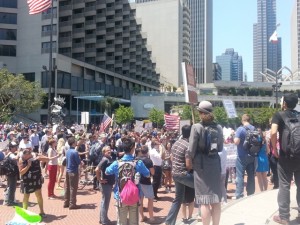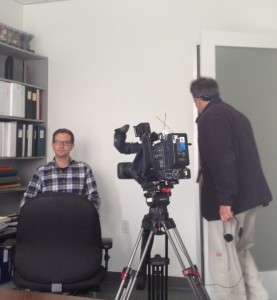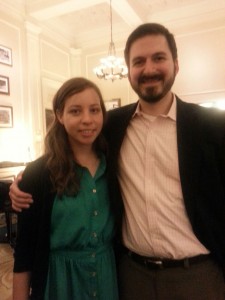Ever since “adult” advertising moved from the back page of The Village Voice to the Internet, some government officials have been trying to censor it. A recent attempt by the New Jersey legislature was blocked by a federal judge on June 28. Chief Judge Dennis Cavanaugh of the U.S. District Court for the District of New Jersey signed a temporary restraining order preventing New Jersey from enforcing a law that would have taken effect July 1. The New Jersey law addressed a serious problem — human trafficking and the exploitation of minors — but it did so in a way that unnecessarily and impermissibly burdened a large amount of lawful speech.
The statute would impose severe criminal penalties on any party that “directly or indirectly” caused to be disseminated sex ads containing images of minors. The Act’s broad language would make Internet service providers (ISPs) such as Backpage.com, Craigslist, and the Internet Archive criminally liable for such ads posted by third parties, even if the ISPs didn’t know the person pictured in the ad was a minor.
In 2010, Craigslist removed its “adult services” category after it was pressured to do so by a group of state attorneys general. Those ads moved to Backpage.com, which has since resisted similar pressure to remove adult ads. EFF is representing another plaintiff, the Internet Archive, which acts as a library for the Internet by archiving and displaying as much content as possible from other websites.
Laws that chill a significant amount of speech, even if they address important problems, are unconstitutional under the First Amendment if they are not narrowly tailored. To be narrowly tailored, a law must burden as little lawful speech as possible while still achieving its goals. The New Jersey statute is not narrowly tailored to combat child sex trafficking. On one hand, it punishes people who “knowingly” purchase or author sex ads depicting minors. This part of the law goes after the bad actor, and backpage.com has said that it supports such measures. However, another part of the law punishes parties who “indirectly” cause such ads to be disseminated, which would include any website on which third parties can post ads. It is not a defense under this law that the ISP did not know that the ad depicted a minor.
The law also conflicts with Section 230 of the Communications Decency Act, a federal law which shields ISPs from liability for content posted by third parties. Under Section 230, for example, Youtube is not liable for videos posted by users that infringe copyrights or otherwise break the law.
To comply with the New Jersey statute, an ISP would have to manually inspect every item posted on its website and obtain identification for every person pictured who could potentially be a minor. This is an impossible task for websites like Craigslist and Backpage.com, where millions of users post content daily, and for the Internet Archive, which attempts to house every webpage that ever existed. It would likely force advertising services to ban adult or sexual ads altogether, which is probably what the legislature was aiming for.
Now that New Jersey is temporarily restrained from enforcing its statute, I’m writing a brief explaining why the judge should issue a permanent injunction.
San Francisco’s Rally to Restore the Fourth Amendment
Last week I marched in the Fourth of July Rally to Restore the Fourth. Hundreds of people walked down Market Street from U.N. Plaza to the Ferry Building protesting warrantless, secret surveillance by the National Security Administration.




